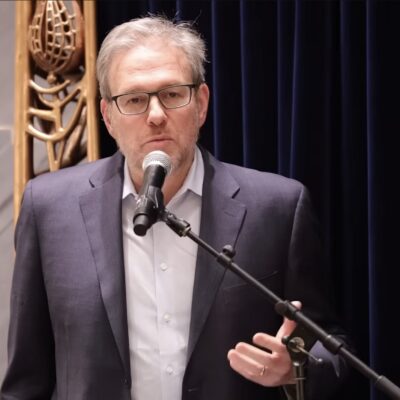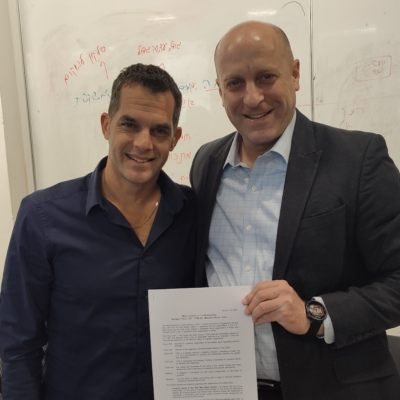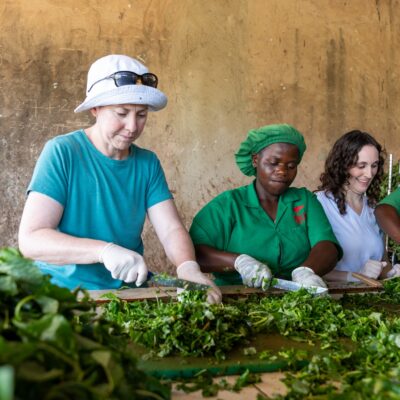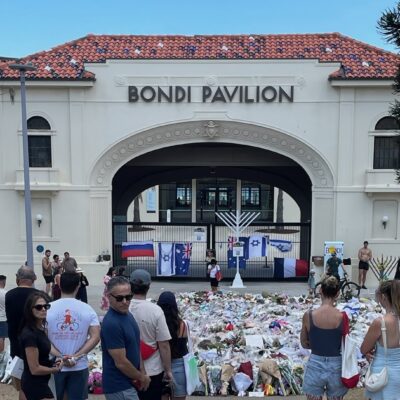Opinion
STRESS TEST
How do we prepare for our nation’s mental health tsunami?
Since Hamas perpetrated the terrorist atrocities of Oct. 7 on the people of southern Israel, Israeli mental health professionals have been bracing themselves for an exponential increase in the number and complexity of expected mental health cases.
Already after two months of war, 1 in 3 Israelis reported some symptoms of post-traumatic stress disorder. Preparing for and meeting the needs of this unprecedented tsunami of people struggling with their mental health, given that the attacks and their aftermath impacted thousands of people of all ages, will be no simple task for Israel’s health care system. We are focusing on several populations, including the direct victims of terror, the first responders and IDF soldiers, and tens of thousands of displaced Israelis. A particular emphasis will be on young adults who were survivors of the Nova festival, some of whom already had underlying mental health conditions. Some of this population will be treated at Herzog Medical Center in Jerusalem’s Young Adult Outpatient Clinic, the first of its kind in Israel; many more in Metiv: the Israel Centre for the Treatment of Psychotrauma, affiliated with Herzog Medical Center; and yet others at the Herzog Medical Center’s outpatient clinic for security forces for the treatment of PTSD and other psycho-psychiatric conditions.

Family and friends of fallen IDF soldier Afik Rozental, who died in a battle with Hamas terrorists, attend his funeral on October 9, 2023 in Kfar Menachem, Israel. Photo by Amir Levy/Getty Images
Global Jewry has also been impacted by Oct. 7, albeit in different ways and to a different degree. The rise in antisemitism on campuses, on social media and in street demonstrations, coupled with close personal ties between Israeli and Diaspora Jews, has led to high levels of anxiety and fear.
In essence, the whole Jewish nation is suffering from anxiety and stress at some level. As I discussed during a recent visit to London on behalf of the British Friends of Herzog Medical Centre, we can use “differential circles,” based on one’s proximity to the events of Oct. 7, to help us differentiate the stress and trauma levels.
Thinking in circles
According to differential circles theory, the first circle comprises those directly exposed to trauma, including the hostages and residents of southern cities that were attacked, Nova Festival participants and the combat units and security forces that fight against Hamas. The second circle consists of residents of southern Israel, who continue to live in a state of war, and people who lost their loved ones as they were communicating with them. The third circle includes rescue teams and first responders (both medical and psychosocial teams), which I will address in greater detail below.
The fourth circle is made up of evacuees from the south and north of Israel, who have been uprooted from their homes and their daily life; and the fifth circle is Israeli residents that are experiencing terror attacks and the impact of war on a daily basis. In the sixth circle are the Diaspora communities that are under their own type of attack on a regular basis.
Theoretically, the first three circles have a greater probability of suffering from stress- and trauma-related disorders, but in every cycle we find a higher percentage of sleep disturbances, anxiety and depression symptoms. That is why PTSD is one of the most complex psychiatric conditions, characterized by symptoms of reexperiencing, avoidance, negative alterations in cognition and mood, and marked alterations in arousal and reactivity following primary or secondary exposure to a traumatic event.
It is imperative to seek professional help if we and our associates feel unwell. In most cases, anxiety-coping mechanisms should suffice, but it’s always best to allow for the mental health professional and their team to provide a proper diagnosis. PTSD can be assessed by structured interviews and screening measures in psychiatric and non-psychiatric settings.
Complex challenges and opportunities to help
The aftermath of Oct. 7 is a wake-up call for Israel’s health care infrastructure, and particularly the mental health care system. There are nongovernmental organizations operating in the trauma space for specific demographics, but few provide support services for the general public. In one recent conversation with an NGO colleague, they shared a remarkable statistic: Over 100,000 Israelis had reached out to their call center sharing their anxiety and concern following the attacks. This is an increase of more than two-thirds of their typical quarterly call volume. Furthermore, while this NGO can provide advice, some 10-20% of callers require referrals for further treatment. Keep in mind as well that this is the situation before the war has ended and typical PTSD symptoms have kicked in for veterans and other first responders.
Philanthropy can play an instrumental role in helping Israel navigate these challenges. To start, nonprofit hospitals such as Herzog need to offset the cost of treatments for many Israelis who are unable to pay. On average, we know that the monthly cost of intensive mental health treatment is 5,000 NIS ($1,335) per patient; and we predict that some severe cases, along with the people in their surrounding environment (family, friends, etc.), will need support for a considerable period. If we just take our conservative estimate of 10,000 patients needing care within the greater Jerusalem area, that is a cost of 50 million NIS ($13.35 million) per month, which philanthropic dollars can help support through funding training, infrastructure and more.
There are also worthy mental health programs with which philanthropists can partner. Herzog, for instance, has launched an emergency campaign to ensure mental health professionals have sufficient support for the unprecedented volume and complexity of cases. Over 2,500 mental health workers from across Israel have registered for Herzog’s affiliate Metiv’s “Helping the Helpers” initiative, a multipart course focused on equipping all who provide care to have sufficient knowledge on how to handle this broad range of mental health conditions following Oct. 7. I am proud that we are recognizing that helpers also need support.
Finally, we must prepare for when our soldiers and first responders return home. Renowned across the Jewish world for “Peace of Mind,” its PTSD program for veterans run by Metiv, we can expect an increase in demand for IDF reservist delegations to visit Jewish communities overseas for group therapy.
Despite the scope of all of these challenges, it is heartwarming to already witness the generous and speedy response of philanthropists to prioritize the issue of mental health and trauma care. Together, we will continue to map the needs, share best practices and solutions, emerging as a more resilient and unified Jewish people.
Pinhas Dannon serves as the head of psychiatry at the Herzog Medical Center in Jerusalem.

 Add EJP on Google
Add EJP on Google









